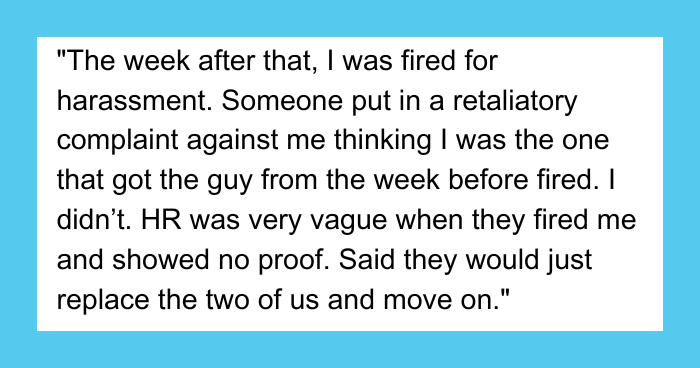Fired and Called “Replaceable”? How One Employee Proved Their Worth
An employee can happen to lose his or her sense of worth, especially, when he or she is unfairly dismissed. Here is a reversal of sorts, and a reminder that when it comes to worker empowerment, the pendulum only takes a couple of right hooks to Free Market Funded Benefit in the wrong direction. HR had no evidence of any wrongdoing, but after a retaliatory harassment complaint, the protagonist was suddenly fired. To add salt into the wound, they were also told that they were ‘easily replaceable.’ But the company did not account for the fact that the employee had been instrumental in servicing their largest client, who noticed the gap left by their departure only weeks after.
Two weeks after their dismissal, the client now called back with the most surprising of offers: an in-house position. The client not only terminated its contract with the previous company — at a cost of $60,000 a month – but also assisted the employee to a better, higher paying job. This story is simply a valuable lesson to know your value, especially when others do not.
If you’re planning to fire the person who handles your biggest client, you should probably have a solid backup plan in place

When an arrogant HR manager went ahead and let go of a crucial team member, it backfired in spectacular fashion
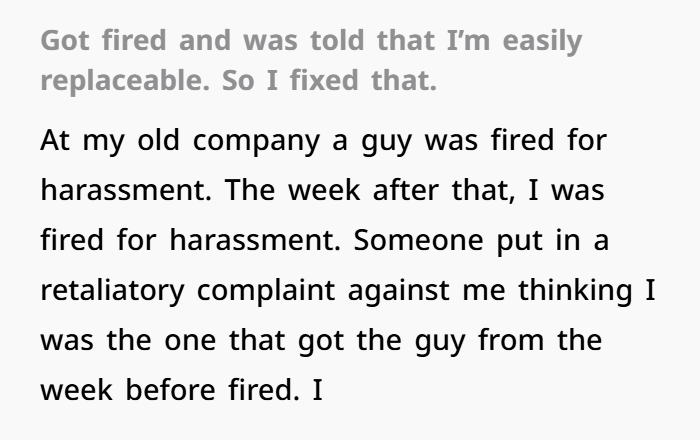
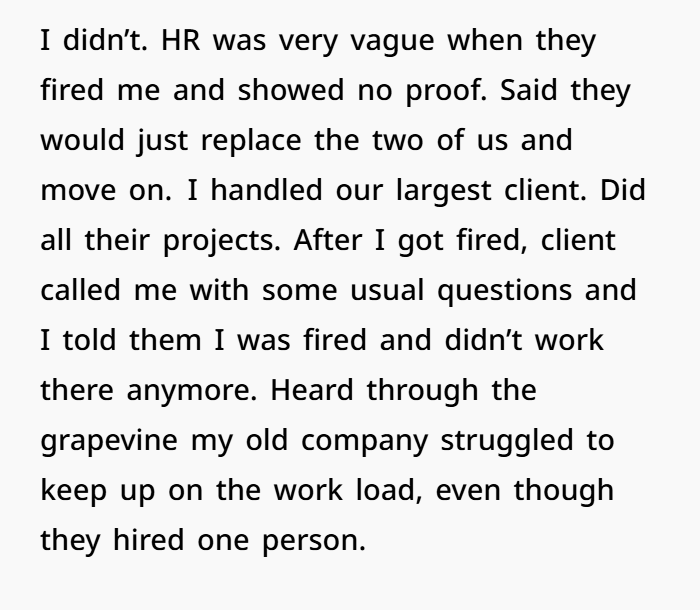

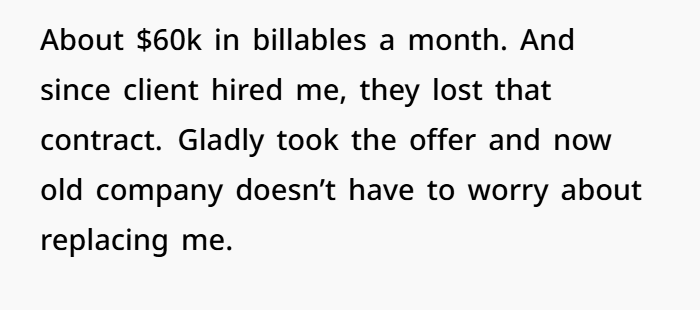
The Power of Professional Value in Workplace Dynamics
The Risks of Poor Employee Management

Disputes at the workplace, especially allegations of harassment, require proper investigation and handling. Some of which made him a much bigger target than he should have been — we do not get to fire you from the job sans evidence and due process, as he has done here. Research from the Society for Human Resource Management (SHRM) points out that a poorly managed termination can negatively impact workplace morale by 25% and with it potential legal risks, and as this story suggests loss of business.
This employee may have been more strategic than the company knew by not doing its diligence in firing the person. This can be a catastrophic oversight: companies depend on a few key employees to maintain most of their clients but rarely protect those relationships during workforce shifts.
Client Relationships Are King
Many industries are built upon client relationships, and the consequences of poorly managed relationships can result in the disastrous loss of revenue. Here, the ex-employee was more than just an employee; he was the link between the company and its biggest paying customer. Research indicates that when a key relationship with your client is disrupted due to the departure of a skilled employee, businesses lose 20–70% of their revenue, highlighting the utmost importance of investing in your property — your people.
The fact that the employee was hired directly by the client proves the role that personal rapport, as well as relevant expertise, plays in forming strong partnerships. The client made an announcement with cutting all ties with the old co.: Its the People who matters more than a Corporate Contract.
Knowing Your Worth in the Workplace
Hearing that you are “easily replaceable” can be demoralizing, but this story serves to highlight the need for realizing and negotiating for one’s worth in the workplace. Human capital—knowledge, skills, experience—has long been one of the most important commodities of a successful business. According to Gallup, it has been found that an Employee who feels valued works 50% more productive span and drives client satisfaction.
The takeaway for workers in similar situations is to document contributions, persistently nurture client relationships, and keep your professionalism at a high level, while still ensuring that the key points are fully conveyed, even if the treatment that the workers experienced was royally unfair! Such measures not only safeguards your image but can also open doors seemingly out of the blue (like this one in the example below).
Legal and Ethical Considerations in Terminations

Indeed, this raises ethical — and potentially legal — concerns about workplace terminations. Firing an employee without conducting an investigation or having any evidence can also result in wrongful termination claims. At-will employment gives companies near carte blanche to fire workers, but antisemitism and absence of due process may establish a basis for a legal challenge under U.S. employment regulations.
For companies, the best practice is to ensure robust HR policies that include:
- Comprehensive investigations into allegations.
- Transparent communication during terminations.
- Safeguards to maintain key client relationships during transitions.
The former employee gave some more info in the comments

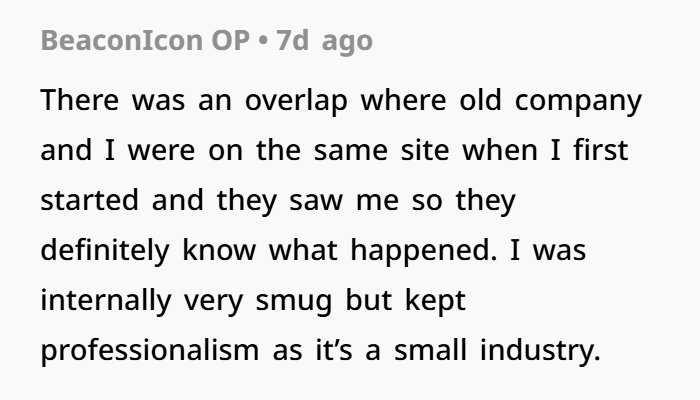
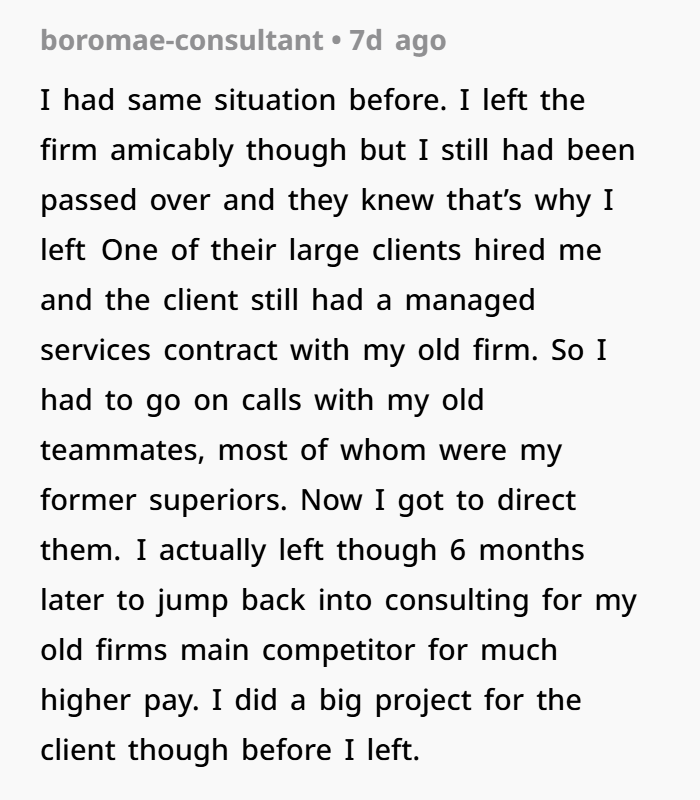
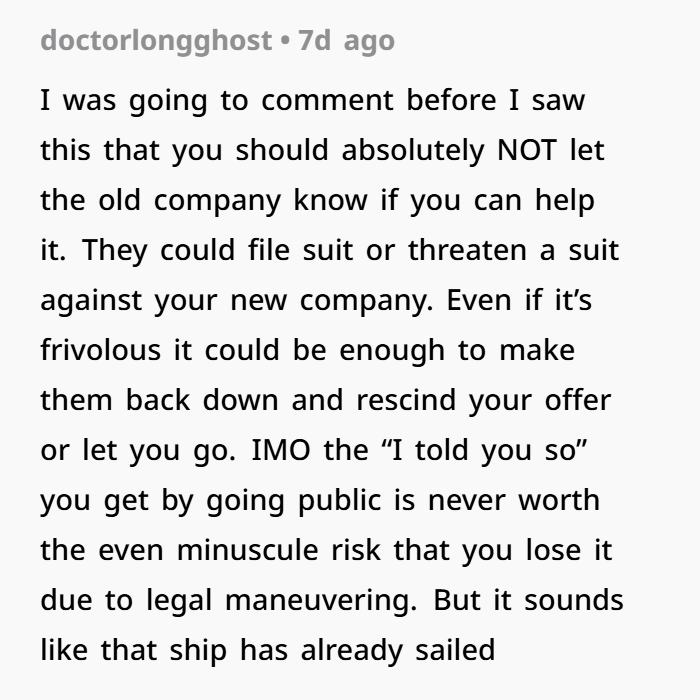
Another lesson in this case is what all businesses must take away from this example of the consequences of under-valuing key employees. They knew their value, they had allies and they converted an unjust firing into an incredible career boost. The shortsightedness cost the old company their highest paying customer and just goes to show that people, and not profits, are the essence of all businesses.

